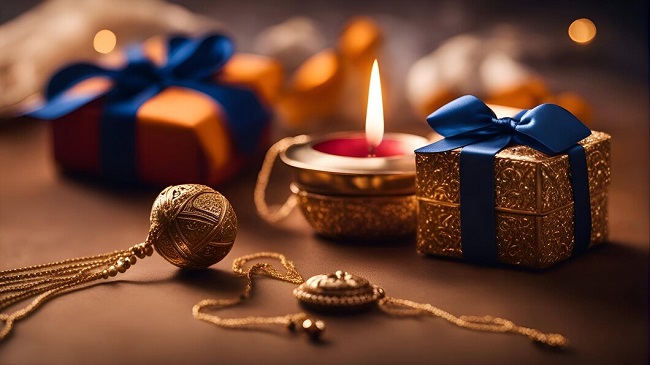Did you know that there is a reason why we celebrate Diwali? You’ve come to the correct place. Diwali, the festival of lights, is extensively celebrated throughout India. But few of us understand why we celebrate Diwali.
Diwali, also known as Deepawali, is a five-day festival celebrated in the Kartik month, beginning with Dhanteras and continuing with Govardhan Puja, Bhai Dooj, Lakshmi Pujan, Narak Chaturdashi, and Choti Diwali. Diwali derives from the Sanskrit words deep (lamp) and wali (row) and is celebrated by lighting clay lights in every crevice.
What is the significance of Diwali?
Diwali is one of the most important and well-known celebrations in India. Diwali is a Hindu holiday that celebrates pleasure, success, and harmony. This Hindu feast is usually celebrated in October or November. It is widely observed as a national holiday in India and other countries throughout the world.
This holiday is surrounded by numerous stories and myths. It commemorates Lord Rama’s victory over Ravana and triumphant return to his home after a 14-year exile. This incident represents the forces of good triumphing over the forces of evil.
On Diwali, people also pay devotion to Lord Ganesha and Goddess Lakshmi. Lord Ganesha, the Destroyer of Obstacles, is revered for his intellect and intelligence. Goddess Lakshmi is also worshipped on Diwali for prosperity and success. In celebration of the “New Year,” businesses open new ledgers….
On the second day of the Diwali festival, Choti Diwali, also known as Naraka Chaturdashi, is observed. The main celebration takes place on the third day. On this day, Lakshmi, the goddess of wealth, is widely revered. People put on new clothes, do Puja, and then rejoice by lighting diya’s and setting off fireworks. Govardhan Puja, also known as Padva, is observed on Diwali’s fourth day. On this day, Lord Krishna is said to have defeated Indra by raising the massive Govardhan Mountain. People revere a small mound made of cow dung that represents Govardhan. Bhai Dooj is celebrated on the fifth day of the Diwali celebrations.
On Diwali, there are frantic celebrations taking place throughout the country. People invite family and close friends. Desserts are cooked and shared with friends and family on this day. Everyone is dressed in new clothes. Young folks dress up in their most opulent and dazzling clothing.
People have a terrific time on Diwali. Even though it is a Hindu holiday, people from all walks of life converge to celebrate with fireworks and crackers. People use clay oil lamps and multicolored lights to decorate their dwellings…
Reasons for celebration:
Even though Diwali is a Hindu holiday, it is celebrated in a variety of ways by different communities across the country. The spiritual meaning of Deepawali, “winning of light over darkness, good over evil, and wisdom over ignorance,” stays the same regardless of where the event is observed. Check all the reasons why we celebrate Diwali.
- According to the Ramayana, Lord Rama, his wife Sita, and brother Laxmana returned to Ayodhya after spending 14 years in exile and defeating the demon king Raavana. He returns to his home for Diwali.
- Lord Vishnu took the shape of Vamana Avatar during the Treta Yug and duped ruler Mahabali into giving up all of his wealth to save Goddess Lakshmi from the evil ruler. Thus, the message of Diwali is emphasized once more: Good always triumphs over Evil….
- The five Pandava brothers were exiled for 12 years by the Kauravas in the Mahabharata after being duped into losing a wager at gaming. On the night of Kartik Amavasya on Diwali, the Pandavas are reported to have returned to Hastinapur.
- Diwali is a historical occasion with mythological and religious importance in India. From 56 to 55 BCE, India was ruled by the great King Vikramaditya, a wise ruler and renowned warrior. People in his kingdom lighted lamps and fired off fireworks to commemorate his coronation, and Diwali has been commemorated ever since to pay honor to the great king.
- According to the most frequently recognized story, Diwali commemorates the day Goddess Lakshmi was birthed from Samudra Manthan, the cosmic ocean of milk churned by the gods and demons. Lakshmi chose Vishnu as her husband on Diwali Eve, and the two were married in a sacred marriage.
- Diwali marks the release of Guru Hargobind by Mughal ruler Jehangir in the Sikh religion.
- The Jain sect celebrates Diwali to remember the day Mahavira’s soul gained Nirvana.
- In certain western Indian states, such as Gujarat, the Diwali festival marks the start of a new year.
- In Eastern India, particularly in West Bengal, Diwali is celebrated as Kali Puja in honor of Goddess Kali, who is said to have gone on a destructive rampage to purify the earth of all demons.







